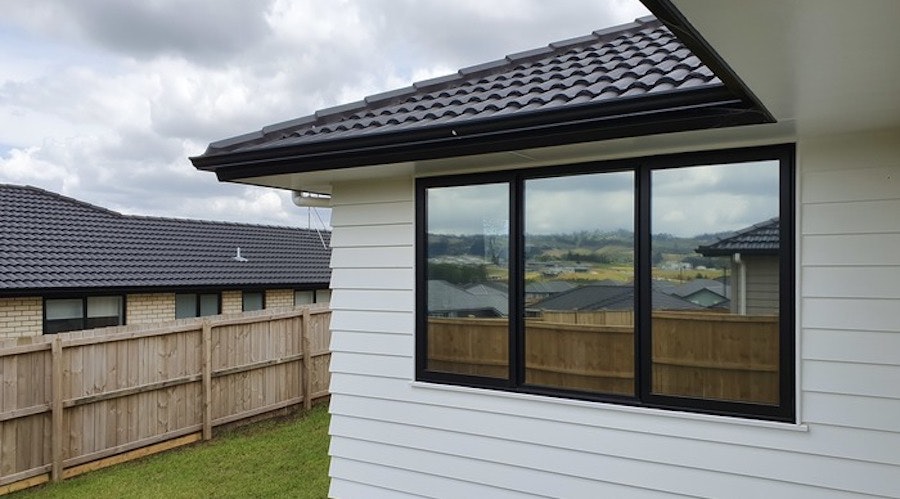Exactly How Residential Home Window Tinting Boosts Your Home's Power Performance
Residential window tinting provides a compelling option for home owners looking for to improve power effectiveness within their living areas. By applying specialized movies to home windows, it effectively reduces warmth transfer, therefore supporting interior temperatures and decreasing the need for extreme heating or cooling.
Comprehending Window Tinting
Recognizing home window tinting is crucial for property owners seeking to improve both comfort and power performance in their living spaces. Residential Window Tint. Home window tinting entails the application of a thin film to the interior or outside surface area of glass windows. This movie can significantly modulate the amount of sunshine and heat that gets in a home, therefore influencing interior environment problems
There are various kinds of window tinting movies offered, each with distinct residential or commercial properties. Dyed movies absorb solar energy, while reflective films deflect it away from the glass surface area. Ceramic movies use an equilibrium of presence and heat rejection, making them a prominent option amongst house owners. The efficiency of window tinting is commonly gauged by its Visible Light Transmission (VLT) percent, which shows just how much light can travel through the movie.
Benefits of Power Performance
Home window tinting not only enhances visual appeals yet also plays a substantial duty in enhancing energy efficiency within domestic rooms. By decreasing warm transfer with windows, colored movies produce an extra secure indoor climate, which can lead to significant reductions in energy usage for heating & cooling. This energy efficiency translates right into lower utility expenses, giving house owners with substantial long-term cost savings.

Additionally, window tinting enhances the convenience of living spaces. By reducing glare and blocking harmful UV rays, tinted windows develop a more positive environment, which can cause enhanced health for owners. The protection against UV rays likewise helps preserve furnishings and floor covering from fading, adding to the durability of family items.
How Tinting Works
Tinting movies operate with a combination of sophisticated materials and innovations created to manage the amount of solar energy going into a home. Primarily made up of polyester, these movies frequently incorporate metal or ceramic particles that take in and mirror warm. This dual capacity enables them to considerably minimize the infiltration of ultraviolet (UV) rays and infrared radiation while permitting noticeable light to travel through.
The performance of window tinting is gauged by its solar warm gain coefficient (SHGC), which indicates how much solar energy is transmitted through the window. Lower SHGC values are more effective as they denote higher heat rejection. Furthermore, home window tints can feature a range of tones, allowing homeowners to tailor their aesthetic preferences while improving power performance.
In addition, these movies serve as an obstacle, preventing heat loss during cooler months by mirroring indoor heat back into the space. This thermal insulation result matches the cooling advantages obtained throughout warmer months, adding to a balanced interior climate year-round. By managing solar power efficiently, domestic home window tinting website link not only enhances convenience yet also plays an important role in lowering energy usage and reducing utility bills.
Choosing the Right Color

There are numerous types of window movies available, including dyed, metalized, and ceramic. Ceramic films supply excellent warm control without endangering presence and are highly resilient, making them a preferred selection.
Visible light transmission (VLT) is another crucial variable, as it indicates the quantity of all-natural light that can go through the tinted glass. Home owners need to select a tint with a VLT that enhances their lighting preferences while still providing sufficient glow reduction.
Furthermore, evaluating the solar warmth gain coefficient (SHGC) can help figure out how well a color can block warmth from sunlight. A lower SHGC suggests better warm control, ultimately boosting power performance.
Installment and Upkeep Tips
Proper installation and upkeep are vital parts in taking full advantage of the benefits of domestic home window tinting. To accomplish optimal results, it is recommended to hire a certified specialist for setup. This ensures that the tint is used appropriately, staying clear of air bubbles, creases, or imbalance that can jeopardize efficiency. Professionals likewise make use of specialized strategies and devices, which can boost the resilience and performance of the tint.
Following installation, upkeep is necessary to lengthen the life of the home window film. It is suggested to wait at least thirty days prior to cleaning up the colored home windows to permit the adhesive to heal completely. When cleansing, utilize a soft fabric and a gentle, ammonia-free cleaner to avoid harming the film. Stay clear of rough materials that can scratch the surface area.
In addition, normal inspections are beneficial. Look for any type of peeling or bubbling, which could suggest incorrect installation or use gradually - Residential Window Tint. Attending to these problems go to this web-site without delay can protect against further damages and preserve power effectiveness. By sticking to these installment and visit upkeep tips, property owners can guarantee their home window tinting proceeds to offer considerable energy financial savings and comfort for years ahead.
Verdict
In verdict, household home window tinting serves as an effective option for improving energy performance within homes. By decreasing heat transfer and obstructing hazardous UV rays, home window movies add to lower power consumption and boosted indoor comfort.
Window tinting entails the application of a thin movie to the inside or exterior surface of glass windows. By lowering warmth transfer via windows, colored films produce an extra steady interior environment, which can lead to substantial decreases in power usage for heating and cooling.The effectiveness of window tinting is gauged by its solar warmth gain coefficient (SHGC), which suggests just how much solar energy is transmitted with the window. By handling solar energy properly, property window tinting not only enhances convenience however likewise plays a crucial duty in reducing power intake and lowering utility bills.
By decreasing heat transfer and blocking hazardous UV rays, home window films contribute to reduce power intake and improved indoor comfort.